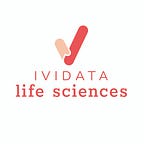How To Avoid Failures In Clinical Trials Using Machine Learning
The failure of many drug candidates to win approval is a huge concern to the pharma companies, especially as this drives the overall cost of drug development. Key questions that deal with this concern are: what drives these failure rates? How can the pharma industry improve productivity when moving drug candidates from laboratory to clinic?
Indeed, the FDA described in March 2006 critical path opportunities to modernize and transform drug development.
Develop better evaluation tools, streamline clinical trials or harness bioinformatics are just some of the topics discussed in the FDA report.
In order to prevent failure and to set up a secure phase III trial, the pharmaceutical industry should improve their methodology during early stage and the way they think the data. Many cutting-edge designs are already available such as Bayesian, hybrid adaptive method or machine learning.
While the amount of data captured has dramatically increased, driving the advancement of Big Data, an efficient framework to manage the data still need to be established.
In 2016, Kaitlin M.Gayvert, Neel S. Madhukar and Olivier Elemento provided an example of innovative design that uses data to predict successes and failures of clinical trials. This kind of approach could help clinical trials whose failures have risen substantially.
Gayvert and al. present a Machine Learning model that accurately predicts the likelihood of toxicity to a drug by integrating the structural and target-based properties of this drug.
This tool could prevent drug development failures observed during advanced stages in development and allow stakeholders to readapt the trial strategy to avoid waste of time and money.
In addition, this method could be used during post approval surveillance of drugs. Indeed, during post marketing studies, as the drug is used in a larger population, the toxicity needs to be verify.
Authors said this approach could improve the drug discovery pipeline, save money and save lives but only if more toxicity data become available.
Pharmaceutical R&D usually work only within their own department, with few exchanges with internal collaborators and trusted external partners. Pharmaceutical companies can extend their knowledge and rationalise the resources by sharing with available stakeholders.
Some pharmaceutical companies have started to improve collaboration by identifying data elements to share with specific sets of trusted partners, such as contract research organizations (CROs).
IVIDATA is one of the world’s leading full-service CROs. We partner with sponsors in the pharmaceutical and biotechnology industries to deliver fully integrated clinical development services.
As a well-known specialist that solve BIG DATA and Artificial intelligence problems, from strategy to end-user, with data science and data privacy, IVIDATA is in a relevant position to respond to concerns of the clients.
IVIDATA has suitable communication processes in place to work effectively with their clients with 2 main departments: Biometry and Data Sciences.
- IVIDATA expertise: DATA STRATEGY — BIG DATA
The main purpose is to support partners in their follow-up of tools and methods in order to respond to the following two major analysis area:
- Descriptive analysis
- Predictive analysis
- IVIDATA stats
The Biometry department makes IVIDATA expert in clinical trial through the knowledge of the various consultants:
- Biostatisticians
- Data manager
- Statistical programmer and SAS development
The pharmaceutical industry is undergoing massive changes, largely due to advances in big data. BIG DATA is going to help Pharmaceutical companies identify new market opportunities, save money and improve the R&D process to release more effective drugs to the market.
IVIDATA has the expertise to understand the necessary elements and compliance required to bring a drug or device through each developmental stage and find efficiencies by streamlining processes and breaking down the way to think and understand data.
Authors:
References:
- Gayvert, Kaitlyn. (2016). A Data-Driven Approach to Predicting Successes and Failures of Clinical Trials. Cell Chemical Biology. 23. 10.1016/j.chembiol.2016.07.023.
- Liu, Yitong & Wang, Guang-Ji & Liu, Chang-Xiao. (2020). Introducing FDA’s White Paper: Challenge and Opportunity on the Critical Path to New Medical Products.
